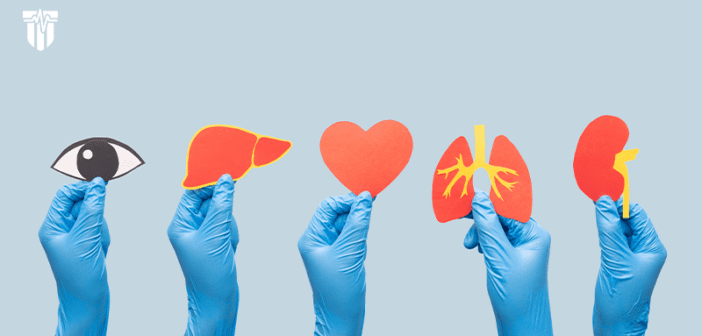By Katherine Pitcher
As a fifteen year old waiting in my local DMV to apply for my learners’ permit, I faced a question I was not prepared to answer: did I want to designate myself as an organ donor?
Sitting in that waiting room and remembering the terrifying videos I had just been shown in my driver’s education class about the consequences of distracted driving, checking the box to become an organ donor seemed like the decent thing to do. I didn’t want to be selfish or wasteful– after all, in the worst case scenario, I wouldn’t be needing my organs anymore. As the organ donor registry Donate Life Texas encourages on their website: “Your generosity can save as many as eight lives through organ donation, bring sight to others with cornea donations and improve yet another 75 lives or more through tissue donation.”
What could be a more persuasive pitch, especially to a teenager or young adult who feels invincible?
However, there is another side to the ethics of organ donation that is less commonly discussed and that I had certainly not considered before I made my choice that day. Pro-Life Texans understand the importance of defending innocent Life until natural death, and I would learn only later that unfortunately, the current system of organ donation fails in many ways to respect the dignity of each individual human Life. A consistent perspective of the value of the human individual and a close examination of the current organ harvesting and donation procedure reveals some immediate, obvious, and incredibly problematic issues.
A Pro-Life person’s first concern seems simple at the outset: ensuring that the people whose organs are being donated are truly deceased.
But how do we define death under state law and hospital policy? This seems a humorously obvious question, but vulnerable patients in controversial cases aren’t laughing.

Don’t miss important Pro-Life stories like this.
Get our Pro-Life Weekly Highlight email just once a week:
As a fifteen year old in the DMV, I hadn’t really given much thought to this question, but I had an implicit assumption that “the powers that be” would surely have a good, evidence-based, unquestionable system in place for making such an important determination.
The truth is that most of us, including my teenage self, have failed to recognize certain deadly implications of the ambiguity in current law. The Uniform Determination of Death Act (UDDA) was drafted in 1981 with the intent of clarifying this very definition, and states that an individual may be legally declared brain dead when he or she experiences “irreversible cessation of all functions of the entire brain, including the brain stem.”
A person with zero brain function as defined by the UDDA cannot take a single breath on her own, and her heart can only beat from 48 hours up to 1 week with the help of a ventilator. She cannot regulate her own body temperature, and her kidneys and digestive organs will stop working after about a week. This is the type of condition most of us imagine when we decide to check the box to join the organ donation registry.
However, prominent cases in the news have historically reported on patients declared “brain dead” living on life support for months or years, such as the widely-publicized case of Jahi McMath. Some patients, like Jenny Hamann, have even been initially diagnosed with brain death and then later recovered completely. Such patients would clearly not be declared “brain dead” using the standard of the UDDA. So who determines how these patients are judged to be suitable for organ donation?
The answer I would only discover years later is that under Texas law, hospitals are left mostly to their own devices to decide what qualifies as brain death. The Health and Safety Code simply states that “the person is dead when, in the announced opinion of a physician, according to ordinary standards of medical practice, there is irreversible cessation of all spontaneous brain function. Death occurs when the relevant functions cease.” There is a failure to define such terms as “ordinary standards of medical practice”, “all spontaneous brain function”, and “relevant functions” among others, which inevitably results in as many different interpretations of the state law as there are hospital systems. Nationwide surveys show wide variations in criteria among leading neurological institutions in the U.S. And these differing interpretations can have fatal consequences for those of us with that little red heart on our driver’s licenses.
What Texas Right to Life’s patient advocates have seen in practice is that if you are listed on the registry, healthcare professionals and attorneys will regard organ donation as your final decision rather than simply an option.
To the average hospital, adding your name to the registry essentially means that you would unquestionably want your organs harvested for donation in the event of a brain death diagnosis. This can translate into the terrifying situation of hospital staff claiming that they are actually protecting you from your family by moving forward with organ harvesting over your loved ones’ attempts to protect you from unethical practices.
Our patient advocacy team has taken call after heartbreaking call from Texas families struggling even to get a second opinion on their loved one’s diagnosis of brain death as they face overwhelming pressure to consent to organ harvesting and removing treatment, often within 72 hours of some tragic incident. This pressure, combined with the ambiguity in the current standard of determining death by neurological criteria and other provisions of state law permitting a hospital committee to override a patient’s own clear medical instructions, makes for a truly deadly combination that harms vulnerable patients and further traumatizes their families.
After learning all of this information, I was highly concerned about my status as being listed on the organ donor registry. However, I still believed that under certain circumstances, I would want the option to be able to save lives through donating my organs. So, what’s a Pro-Life person to do when faced with the flaws in the current system?
The simple and elegant solution I chose: leave the decision up to my chosen medical power of attorney.
My choice to take myself off of the registry and remove that heart from my ID card does not mean that I no longer have the option to donate my organs. This means that this choice will remain in my own hands and in the hands of my husband, with whom I have had discussions at length and who I have legally designated to make these life-and-death decisions when I cannot make them for myself. This means that intense pressure to harvest my organs is less likely to be used as a cudgel wielded against my husband as he advocates for second opinions and longer waiting periods to ensure that I am truly, unquestionably dead. A healthcare entity is less likely to successfully go to court and win guardianship over me by claiming that my husband is violating my known decision about harvesting my organs.
In order to ensure that your loved ones are able to advocate for you in the difficult situation of a brain death diagnosis, please consider withdrawing from the organ donor registry.
You should also update your physical driver’s license card as soon as possible and consider informing your loved ones of your actions and decisions in writing, as the online registry may be slow to reflect updates.
How to remove your name from the Donate Life Texas Registry in less than five minutes:
- Log in to check your status at https://www.donatelifetexas.org/my-dlt/
- Once you have confirmed that you are on the registry, visit tab “My DLT” and then “Withdraw from DLT” (https://www.donatelifetexas.org/profile-remove-me/)
- Check a box to tell them why you’re leaving and then click “Remove Me”
We should remember that these deeply unethical practices in organ donation come primarily from a desire to do the most good.
There is significant, justifiable motivation for medical professionals and the public to believe in the medical miracle that can save the lives of many other valuable human beings with the organs from a single patient. However, our duty as a society is to recognize and protect the individual, intrinsic value of each human Life as something that can never be quantified and should never be commodified.
We are worth far more than the sum of our parts. Until the organ donation system reflects this truth, I recommend you protect yourself and your loved ones by withdrawing from the registry.



